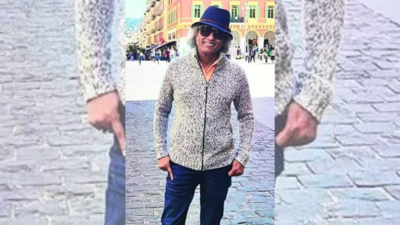His ever-changing hairstyles and bold, unconventional fashion choices are not the only things that made Bhaskar Das memorable. The colourful marketing maverick, whose BDisms are legendary in ad and media circles, passed into a higher realm Wednesday morning (at age 72), surrounded at home by his loved ones, which is how he wanted it to be.
BD, as he was fondly called by many (and Bhaskarda by some), joined Bennett Coleman (BCCL) as a management trainee, and after more than three decades in frontline revenue roles, retired as President-Response.
In the two and a half years since he was diagnosed with lymphoma, even as his tall and lean frame grew frailer by the day, he never once lost his joie de vivre or sense of humour. A week ago, when an old colleague went to visit him at Breach Candy hospital and announced himself at the door, Bhaskar’s nano-second response was, “I have cancer, I don’t have amnesia.”
Nor did he lose his life-long hunger for learning. He gave his admission interview for his third PhD the very day he began chemotherapy. He was forever young, forever curious.
For a number of years, he doubled up as Brand Director for ET. It was a role that required him to delicately and strategically balance the demands of editorial with his primary responsibility as advertising and sales head. He did it with a combination of intellect and intuition. He was always appreciative of good journalism, read the paper end to end, and would often ecstatically call or message in the morning about a great headline or a well-written story. That made it difficult for editors to say no to him when he would “request with folded hands” for an “innovative ad” (read odd-sized ad) in the paper! Their first reaction would almost always be “no”, but then he would coax and cajole, and more often than not, manage to wear down their defences.
Those who worked with him recall how BD backed innovative ideas. Among the many examples they recount is how he stood by the team that worked on India’s first in-train magazine, Rajdhani Times, even when most dismissed it as a futile endeavour. He set up the Grey Cell and Red Cell divisions, recognising that experiential solutions and IPs would be a focus area for brands. He kept his door open to everyone, turning his office into a hub of ideas and energy.
His bite-sized nuggets of wisdom — “You can’t fight a tsunami with an umbrella” — became part of lore. He always asked the team to think “future-backward,” which meant viewing the present from a future perspective and planning accordingly.
After retiring from The Times of India, he went on to serve in top-level positions at a number of large media organisations.
He faced the end of this phase of his journey with equanimity and a lightness of being. But not before he had given his feisty wife Shoma detailed instructions on which songs were to be sung and what food was to be served to celebrate his life.
He would revel in telling the world that his surname of ‘Das’ was a perfect fit for him because it meant ‘servant’. But to the many who worked with him and whom he would fire up with his infectious enthusiasm, he was ‘Bossman’.




